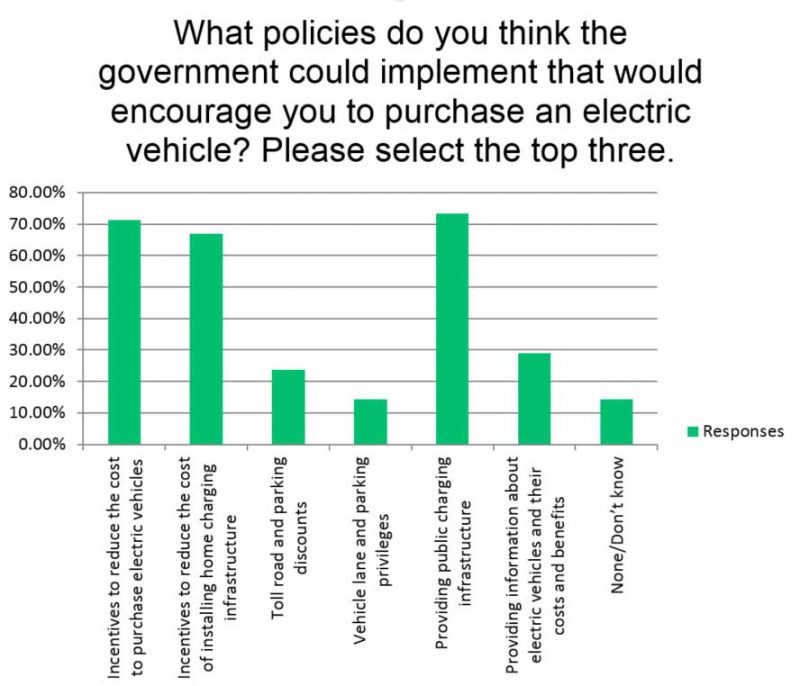The majority of Victorian drivers would like to see government incentives and policy introduced to help reduce the cost of switching to electric cars, a new survey has shown.
With one in two drivers in the state saying they would consider buying an electric vehicle when they next purchase a car, the new survey released by motorists association the RACV has revealed that over 70 per cent of Victorians would like help with the higher up front costs of electric vehicles.
This is up 15 per cent from just two years ago – in 2017, the same survey elicited a response of just 55 per cent of Victorians who would like to see government incentives for electric vehicles, according to a submission by the RACV to the 2017 Victorian state government inquiry into electric vehicles.
The survey, which is the latest conducted annually by the RACV in collaboration with the Electric Vehicle Council (of which it is a member), attracted answers from almost 1,300 RACV members and indicates that the call for government policy to help with the transition to electric vehicles is on the rise.
Electric vehicles currently only account for about 0.2 per cent of Australia’s electric vehicle market, with the higher price of EVs, availability of public charging infrastructure and range having been identified in numerous surveys as a barrier to EV uptake.
The survey suggests Victorians are asking for help from the government with these barriers in no small numbers.
Almost 70 per cent of respondents would like help with the cost of installing charging infrastructure, over 70 per cent would like to see public charging infrastructure policy implemented by the government, while almost a quarter would like to see reduced road tolls and parking costs.

The survey also suggests that Victorian drivers are increasingly aware of the fact that a transition to electric vehicles is on the cusp in Australia (no doubt at least in part due to the pervading discussion and ludicrous fake news campaign by the incumbent Coalition around electric vehicles prior to last month’s federal election).
In fact, one in two Victorians would consider buying an EV when next they consider buying a car.
When asked about what specifications they would like in an EV, Victorians indicated that they would expect to have at least 450km of driving range and would like to be able to charge their vehicles in half an hour when away from home, according to the survey.

Overwhelmingly, the survey also showed that 80% of Victorians believe the RACV should take a leading role in representing drivers in regard to the transition to electric vehicles.

The RACV is already doing some work towards this; in 2018 along with other car clubs, as well as Wilson transformers and Car Sales’ Greg Roebuck, it joined forces with ARENA to fund a $15 million ultra-fast EV charging network from Adelaide to Brisbane and around Perth.
With more and more electric car models being made available to buy in Australia every month, the need for increased infrastructure is undeniable.
Last month the Tesla Model 3 was made available to order online and next month it and others from Hyundai, BMW, Renault and Jaguar, will be joined by the 2020 Nissan Leaf, followed by EV offerings from Mercedes-Benz, Audi and more.

Bridie Schmidt is associate editor for The Driven, sister site of Renew Economy. She has been writing about electric vehicles since 2018, and has a keen interest in the role that zero-emissions transport has to play in sustainability. She has participated in podcasts such as Download This Show with Marc Fennell and Shirtloads of Science with Karl Kruszelnicki and is co-organiser of the Northern Rivers Electric Vehicle Forum. Bridie also owns a Tesla Model Y and has it available for hire on evee.com.au.

